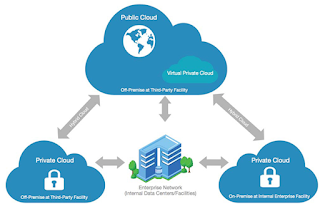Applications Of Cloud Computing
what are the uses of cloud computing ? Storage , Backup and Disaster Recovery Cloud provides you the option to store data in a cost-efficient manner at an extremely large scale. You can transfer your data to an offsite cloud storage system that is accessible from any location and any device Delivery of Software on Demand Software as a service (SaaS) business models run on cloud platform. Latest software updates are available to your customers at any place and time Embedding of Intelligence Intelligence tools can be embedded to provide you with valuable insights from the data captured. This enables better management of data Creation of New Services and Applications Build, deploy and scale of new applications is easier on the web, mobile and APIs with cloud technology. Streaming of Audio and Video It becomes easier to connect with your audience at any time and on any device with HD video option and audio with global distribut...



Comments
Post a Comment